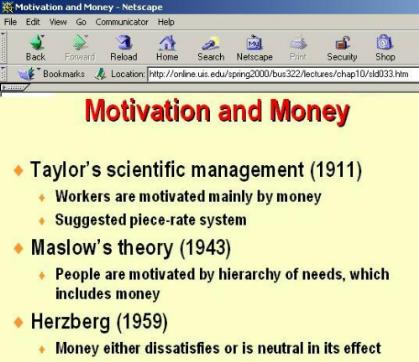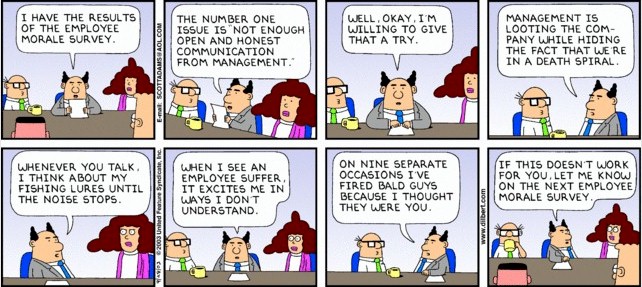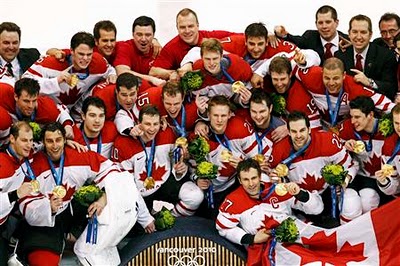
| MOTIVATION |  |
This
page last updated 2013 Sept 17
.
 |
This web page has audio clips - just click on the icon (like the one to the left) and you can hear Prof. Richardson's voice adding additional information to topics on the page. |  |
turn on your speakers to hear audio clips |
| . | This page
used in the following courses taught by Prof. Richardson
.
This page deals with o
Motivation - for personal purposes
|
 |
Motivation and Marketing
The study of what causes people to buy a product, so you can design promotion (advertising and publicity) to effectively cause they buyer to... buy |
Is
it possible to really be effective at motivating people?
 |
... | Is it possible to really
be effective at motivating people?
If so, how do you do it? Prof. Richardson has some
previous experience with "motivating" people and an explanation of this
can be found at
Historically, people have
approached motivation with a carrot or stick approach.
It is my personal opinion that neither method is truly successful since it involves trickery and is inherently false and susceptable to short term results. The best way to motivate a person is to approach it from the angle of creating strong and sustained interest in the goal, which will serve to draw the person into a path of personal motivation that will lead to them truly wanting to achieve the required objectives leading to the ultimate prize. This path can be expressed as an equation which is outline below. |
 |
from the great site of Dr.
Ardeshir Lohrasbi
http://www.uis.edu/~lohrasbi/ teaching BUS 322 – Operations Management http://online.uis.edu/spring2000/bus322/ University of Illinois at Springfield |
vv
| Historical
Perspectives on Motivation
|
Taylor
"assumed that economic gain was everyone's primary motivation" |

| Historical Perspectives on Motivation | Mayo (Harvard
University)
|
| Historical Perspectives on Motivation | Herzberg
http://www.businessballs.com/herzberg.htm (thanks to student Andy Lee for the updated link) |
| Historical Perspectives on Motivation | Maslow
|
The traditional rendering of Maslow's Hierachy of Needs |
. |  |
| In August 2013 former UTM
student Marc Nashaat
(https://twitter.com/marcnashaat ) posted in WTGR's "former students of witiger Facebook group" a different way of seeing the importance of different needs. At first glance one might dismiss this as just an amusing observation, but for our increasingly urban and web-connected population, (and for Canadians jacked up by an oligopoly of cell phone providers who's high rates cause us all to look for WiFi everywhere) searching for WiFi could be considered a need beyond all others since once you have that connection, you can in turn use your device to find all the other things you need... agreed?? |

| Motivation
Motivation |
Jessie wrote
In this new era, the best kind of motivation is intrinsic, which is based on autonomy, mastery, and purpose. Organizations should then offer people the opportunity to direct their own life, support individual desires to become better at what they do, and allow people to do what they do for something greater than themselves. This is the reason why companies that follow ROWE (results-only work environment) are more successful with employee performance, satisfaction, and retention rate. In other words, businesses that have no specific rules or schedules and only require employees to get the job done regardless of when, where, or how are the best. So here's the link on TED if you haven't seen it and would like to share all this on the course website www.ted.com/talks/dan_pink_on_motivation.html WTGR replies
|
| Motivation
and Boosting Morale |
Student Kenny
K. in MGTC46 at UTSC in mid-March 2011 emailed to say
This past year I was the Curriculum Manager for LIVE Conference 2010 and there were times when the morale of our team was very low. During this time team members were constantly bickering with each other, efficiency was at an all time low and nobody was motivated to do anything! This was a very big problem since it was crunch time and the conference was quickly approaching. Eventually once the problem was sorted out, you could just feel a different vibe throughout the whole team. When morale was high, we all worked harder and just simply cared more. Just wanted to share my thoughts regarding this topic, and how morale is not only important in a workplace, but across all aspects of life as well. WTGR replies
|

| Historical Perspectives on Motivation | ERG Theory
|
| Perspectives on Motivation | Job
Enrichment Theory
A motivational strategy that emphasizes motivating the worker through the job itself. People who advocate this theory believe 5 characteristics of work to be important
|
| Perspectives on Motivation | McGregor's
Theory X and Theory Y
Theory X Assumes
Assumes
|
| Motivation for management | Motivation
for sales people and compensation
Salesperson motivation - traditionally it was thought that
2013
- IT companies are finding that it is also important to consider additional
factors in motivating sales people who are the Internet generation
|
| Motivation and elite sports | Team
Canada had plenty of motivation to win Olympic gold in Vancouver in Feb
2010 in front of a hockey-mad host nation in Vancouver, but just in case
they needed some extra inspiration, they found it on the
wall of their dressing room at Canada Hockey Place.

http://www.youtube.com/watch?v=TevktQeSYQ4
USA hockey player phones
in sick
Below is the English version of whatthe coach wrote on the wall. It was written by Canadian head coach Mike Babcock with help from Rick Larsen. * LEAVE
NO DOUBT
Canada 3, USA 2
http://www.cbc.ca/sports/hockey/story/2010/03/02/sp-canada-hockey-leavenodoubt.html
|